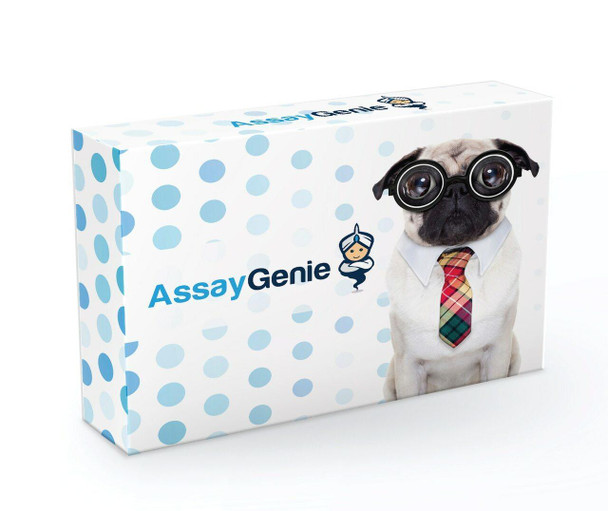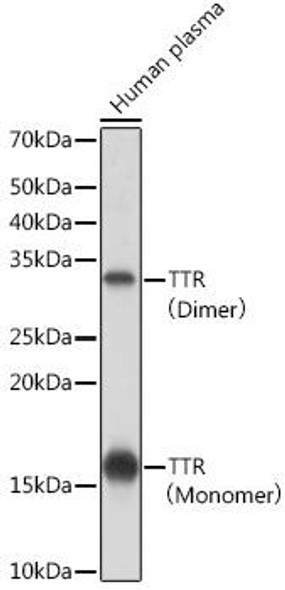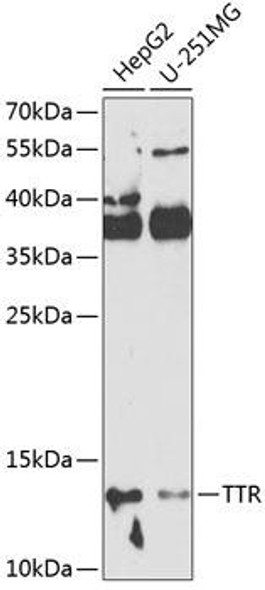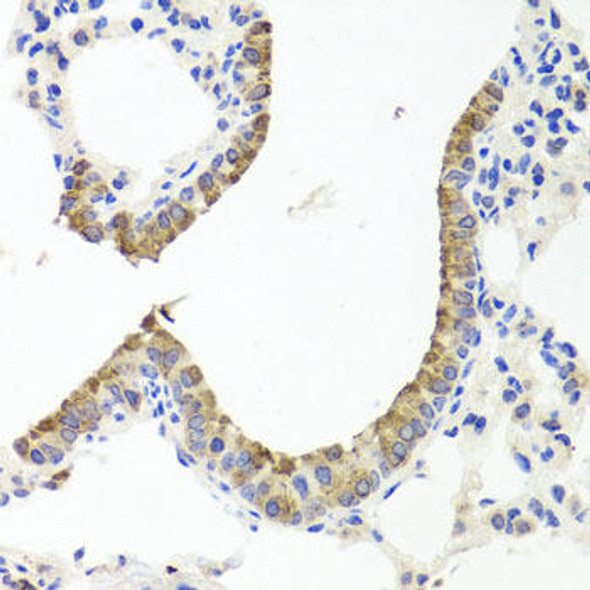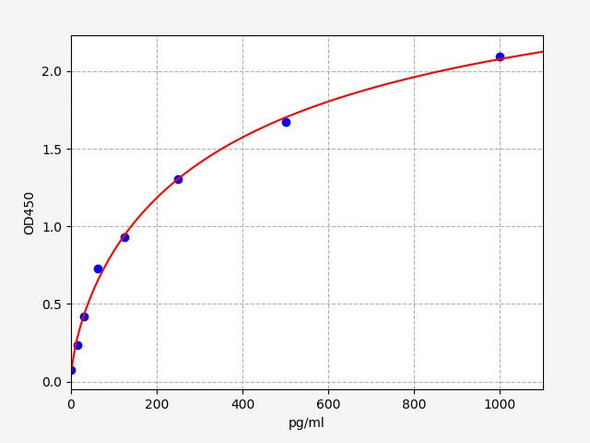Description
Ttr Antibody (PACO30878)
The TTR Polyclonal Antibody (PACO30878) is a valuable tool for researchers studying Transthyretin (TTR), a protein involved in various physiological processes such as transport of thyroxine and retinol-binding protein. The antibody, generated in rabbits, demonstrates high reactivity with human samples and is validated for use in a variety of applications including Western blot and immunohistochemistry.TTR is known for its implications in several diseases including familial amyloid polyneuropathy and senile systemic amyloidosis, making it a promising target for therapeutic interventions.
By detecting and analyzing TTR protein expression, researchers can gain insights into the molecular mechanisms underlying these diseases, paving the way for novel treatments and diagnostic strategies.With its specificity and sensitivity in detecting TTR, the PACO30878 antibody is an essential tool for scientists investigating the role of TTR in health and disease. Its versatility in applications and reliable performance make it a valuable asset in the fields of neurology, cardiology, and protein aggregation research.
| Antibody Name: | Ttr Antibody (PACO30878) |
| Antibody SKU: | PACO30878 |
| Size: | 50ug |
| Host Species: | Rabbit |
| Tested Applications: | ELISA |
| Recommended Dilutions: | |
| Species Reactivity: | Mouse |
| Immunogen: | Recombinant Mouse Transthyretin protein (23-147AA) |
| Form: | Liquid |
| Storage Buffer: | Preservative: 0.03% Proclin 300 Constituents: 50% Glycerol, 0.01M PBS, PH 7.4 |
| Purification Method: | >95%, Protein G purified |
| Clonality: | Polyclonal |
| Isotype: | IgG |
| Conjugate: | Non-conjugated |
| Background: | Thyroid hormone-binding protein. Probably transports thyroxine from the bloodstream to the brain. |
| Synonyms: | Transthyretin (Prealbumin), Ttr |
| UniProt Protein Function: | TTR: Thyroid hormone-binding protein. Probably transports thyroxine from the bloodstream to the brain. Defects in TTR are the cause of amyloidosis transthyretin-related (AMYL-TTR). A hereditary generalized amyloidosis due to transthyretin amyloid deposition. Protein fibrils can form in different tissues leading to amyloid polyneuropathies, amyloidotic cardiomyopathy, carpal tunnel syndrome, systemic senile amyloidosis. The disease includes leptomeningeal amyloidosis that is characterized by primary involvement of the central nervous system. Neuropathologic examination shows amyloid in the walls of leptomeningeal vessels, in pia arachnoid, and subpial deposits. Some patients also develop vitreous amyloid deposition that leads to visual impairment (oculoleptomeningeal amyloidosis). Clinical features include seizures, stroke-like episodes, dementia, psychomotor deterioration, variable amyloid deposition in the vitreous humor. Defects in TTR are a cause of hyperthyroxinemia dystransthyretinemic euthyroidal (HTDE). It is a condition characterized by elevation of total and free thyroxine in healthy, euthyroid persons without detectable binding protein abnormalities. Defects in TTR are a cause of carpal tunnel syndrome type 1 (CTS1). It is a condition characterized by entrapment of the median nerve within the carpal tunnel. Symptoms include burning pain and paresthesias involving the ventral surface of the hand and fingers which may radiate proximally. Impairment of sensation in the distribution of the median nerve and thenar muscle atrophy may occur. This condition may be associated with repetitive occupational trauma, wrist injuries, amyloid neuropathies, rheumatoid arthritis. Belongs to the transthyretin family. |
| UniProt Protein Details: | Protein type:Secreted, signal peptide; Secreted Cellular Component: extracellular region; extracellular space; protein complex Molecular Function:hormone activity; hormone binding; identical protein binding; protein binding; protein heterodimerization activity Biological Process: retinol metabolic process; transport |
| NCBI Summary: | This gene encodes a carrier protein responsible for the transport of thyroid hormones and retinol. The protein consists of a tetramer of identical subunits. Due to increased stability of the tetramer form of this encoded protein in mouse, compared to the human protein, this gene product has a reduced tendency to form amyloid fibrils. In humans, this protein binds beta-amyloid preventing its aggregation and providing a neuroprotective role in Alzheimer's disease. [provided by RefSeq, Mar 2010] |
| UniProt Code: | P07309 |
| NCBI GenInfo Identifier: | 7305599 |
| NCBI Gene ID: | 22139 |
| NCBI Accession: | NP_038725.1 |
| UniProt Related Accession: | P07309 |
| Molecular Weight: | 15.6 kDa |
| NCBI Full Name: | transthyretin |
| NCBI Synonym Full Names: | transthyretin |
| NCBI Official Symbol: | Ttr |
| NCBI Official Synonym Symbols: | D17860; AA408768; AI787086; prealbumin |
| NCBI Protein Information: | transthyretin |
| UniProt Protein Name: | Transthyretin |
| UniProt Synonym Protein Names: | Prealbumin |
| Protein Family: | Transthyretin |
| UniProt Gene Name: | Ttr |
| UniProt Entry Name: | TTHY_MOUSE |

